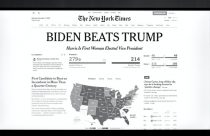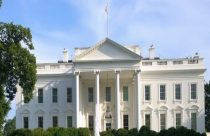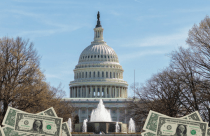Trump’s Anniversary Highlight: Reduced Research Funding?

Since taking office, President Trump has made a number of changes to US federal policies. These changes have impacted the work of scientists within the nation. Trump’s first year in office has been characterized by moves that shocked the scientific and international communities including censorship of scientific terms relating to health, withdrawal from the Paris Climate Change Agreement, cuts to the H1-B visa program, and purges to federal scientific advisory boards. Given this track record, US government’s temporary funding budget coming to an end, leading to several services to be shut down comes as no surprise. Finally to the relief of the researchers, the US government extended the temporary funding up to a few more days. Let us learn about it in details.
US Government Shutdown
The US government was operating under a temporary funding measure, which expired on 19 January. As a result the government will run out of money. By law, it would be forced to cease many government services and shutter facilities until lawmakers approve a new budget. This was due to the fact that the Congress failed to negotiate a spending plan for the budget of 2018. This could only be resolved if Congress and the White House agreed on a spending plan to pay for government operations.
However, the US government shutdown that began on 20 January is no longer taking place. The Congress has approved legislation on 22 January to fund government operations until 8 February. US President Donald Trump signed the document soon after. This short-term funding will help the government to function, providing the funds for less than three weeks. The scientific community can watch out for another show regarding the US government’s funding issue in the first week of February.
According to Glenn Ruskin, spokesman of the American Chemical Society, and Matt Hourihan, incharge of budget and policy programmes at the American Association for the Advancement of Science (AAAS), these steps disrupt the flow of science. Funding stability and predictability are crucial for proper functioning of research agencies. If the Congress and White House fail to resolve the issue, the researchers are under the panic that their work might have to be stopped. Several government employees might be affected, as well as the research being conducted in government organizations like the National Institute of Health (NIH) and NASA. The scientific community is waiting for the final showdown.
Scrutiny of Research Funding
This is not first instance, as US government has been eyeing research funding for a long time. Recently a memo to the Washington Post was leaked which revealed that the US Department of the Interior is adopting a new step in the screening process of research grants. The screening process is applicable for outside grantees, including academic institutions such as universities and non-profit organizations. All discretionary grants over $50,000 must now be evaluated by Steve Howke, a previously low-profile staff member, to make sure that they “better align with the administration’s priorities.” A list of ten administrative priorities accompanied the memo. The Interior secretaries under Democratic and Republican presidents have directed federal dollars to support their priorities. However, the creation of a formal approval process appears to be without precedent within the department.
In addition, the memo came with a warning that failure to comply would have consequences.
“Instances circumventing the secretarial priorities or the review process will cause greater scrutiny and will result in slowing down the approval process for all awards,” the memo stated, in boldface.
Both current and former government officials have been critical of the move. David J. Hayes had served as the Interior’s deputy secretary under Bill Clinton and Barack Obama. Hayes currently serves as the executive director of the New York University School of Law’s State Energy and Environmental Impact Center. He expressed his concerns on this recent development. According to him, Subjugating Congress’ priorities to the Secretary’s own priorities is an arrogant, impractical and, in some cases, likely to be an illegal move. He added that these programs are governed by laws that the Congress passes.
Hayes suggested that the government contract processes are complex. The applicants expect their proposal to be reviewed with fairness, impartiality, and integrity. Political interference would sully the integrity of contracting processes that applicants have a right to expect.
Echoes of the EPA
The step echoes the major changes made at the Environmental Protection Agency (EPA) earlier in 2017. The Agency also instituted a political vetting process for its grants, assigning John Konkus, who officially works in the EPA’s public affairs office. He will review discretionary grants. Konkus will review every award the agency gives out, along with every grant solicitation before the award is issued. By far, the majority of scrutiny has fallen on grants related to climate change and environmental initiatives.
While it is unclear exactly what kind of impact the new vetting process is going to have on science funding, the outlook does not seem bright. The EPA’s initiative has by far canceled close to $2 million competitively awarded to universities and nonprofit organizations. Rep. Raúl M. Grijalva of Arizona, the top Democrat on the House Natural Resources Committee, has also denounced this step of the government. To him, this grant approval process looks like a backdoor way to stop funds going to legitimate scientific and environmental projects. He also added that this may result in harming scientists doing important work because they disagree with that philosophy. This is unacceptable for the scientific community.
Several months before the memo was leaked, the Interior had already canceled a $100,000 grant to the National Academies of Science, Engineering and Medicine. It originally funded a study on the health risks for residents living nearby coal mining sites. It would appear that further cuts of funding to similar initiatives are not unlikely with the new policy in place.
To avail research funding, your idea needs to be put down in a proper way in your manuscript. Make sure the manuscript is edited properly before submission to the journal.
What do you think of this policy change? Have you or your institute been affected by this policy change? Please let us know your thoughts in the comments section below.








